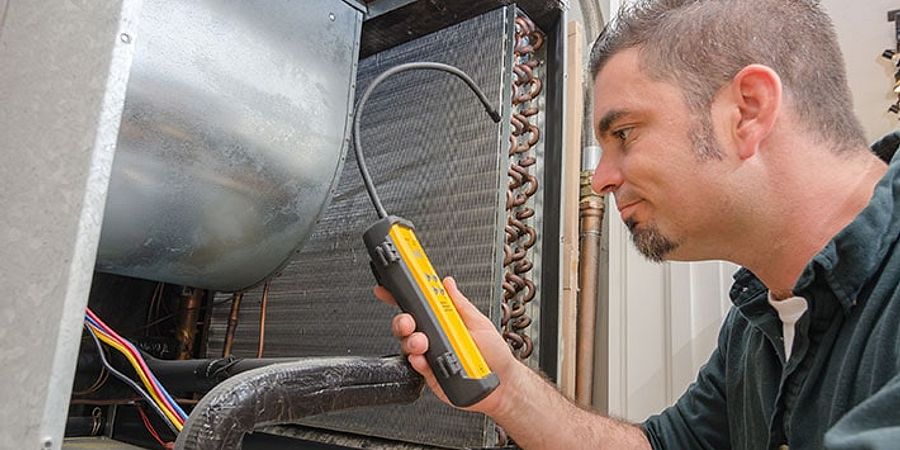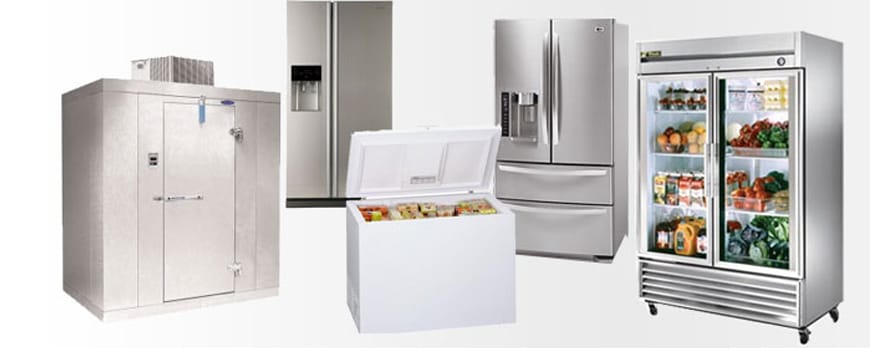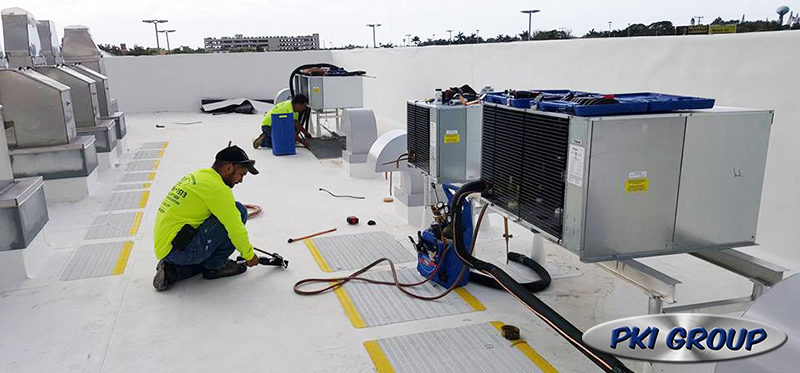Maximizing Efficiency: Commercial Refrigeration Repair Techniques for Cost-Effective Solutions

Assessing Refrigeration System Performance
To effectively review the performance of an industrial refrigeration system, it is important to perform thorough analyses of its operational parameters and crucial parts. The very first step in assessing system efficiency is examining the performance of the compressor. The compressor plays a crucial function in preserving the preferred temperature level within the refrigeration unit. Issues with the compressor can cause inadequate air conditioning, temperature level fluctuations, and enhanced energy intake. Carrying out normal examinations and performance tests on the compressor can aid identify possible troubles early on and prevent pricey failures.
Additionally, examining the condenser and evaporator coils is vital. Blocked or unclean coils can dramatically influence the system's performance by preventing heat transfer procedures. Cleaning up the coils on a regular basis and making sure appropriate airflow around them can maximize the system's air conditioning ability and minimize energy consumption. Checking cooling agent levels and stress is likewise important in assessing system efficiency. Reduced refrigerant degrees or unusual pressures can show leakages or malfunctioning components that require instant interest to stop system failures and costly fixings. By systematically assessing these essential components and operational parameters, companies can ensure their commercial refrigeration systems operate at peak efficiency degrees, reducing downtime and taking full advantage of energy performance.

Applying Preventative Upkeep Measures
Examining the performance of a commercial refrigeration system supplies important understandings that can educate the execution of preventative maintenance procedures important for maintaining optimal capability and durability. Preventative upkeep is a positive strategy targeted at recognizing and addressing potential concerns before they rise right into costly troubles that interrupt procedures. By establishing a routine upkeep timetable, refrigeration systems can operate efficiently, reducing power usage and minimizing the danger of unanticipated malfunctions. Key preventative upkeep measures consist of cleaning up and evaluating condenser coils, inspecting refrigerant degrees, making certain correct air flow, and adjusting temperature level controls. Additionally, keeping an eye on temperature level and moisture levels, evaluating door seals, and dealing with any type of uncommon sounds or odors quickly are essential action in preventative maintenance. Executing these procedures not just extends the life-span of the devices yet additionally enhances food security by maintaining consistent storage temperatures. Ultimately, purchasing preventative maintenance procedures is a cost-effective strategy that helps businesses avoid costly repair work and downtime, guaranteeing constant and reputable refrigeration system efficiency.
Identifying Common Refrigeration Issues
One of the essential facets in keeping business refrigeration systems is quickly recognizing typical issues that may develop during their operation. In addition, malfunctioning gaskets on doors, resulting in air leaks, can create the refrigeration system to work more challenging to maintain the preferred temperature. By without delay recognizing and attending to these usual refrigeration problems, organizations can make certain the effective operation of their systems and minimize expensive repairs.
Using Energy-Efficient Repair Service Strategies
When thinking about commercial refrigeration repair work, implementing energy-efficient methods is critical to maximizing the system's efficiency and decreasing functional costs. One of the crucial approaches in achieving energy performance is guaranteeing that the refrigeration system is appropriately preserved. Normal maintenance, such as cleaning up condenser coils, checking for cooling agent leakages, and adjusting temperature level setups, can significantly improve energy try this site effectiveness.
One more energy-efficient repair work strategy is upgrading to high-efficiency elements - Toronto commercial refrigerator repair. By changing older, much less effective get rid of energy-efficient alternatives, such as ECM follower electric motors or LED illumination, organizations can decrease power consumption see this site and lower utility expenses. In addition, setting up programmable thermostats and power management systems can help regulate temperatures a lot more effectively, stopping unneeded power use
In addition, maximizing the system's insulation and sealing any type of leakages can likewise add to energy cost savings. Appropriate insulation helps maintain regular temperature levels within the refrigeration device, reducing the work on the system and improving overall efficiency. By incorporating these energy-efficient repair work techniques, companies can not only minimize their environmental impact but also attain lasting price financial savings.
Optimizing Refrigeration System Life-span
To make certain the long life and ideal performance of industrial refrigeration systems, maintaining energy-efficient repair techniques is crucial, with an emphasis now moving towards maximizing the refrigeration system life-span. Enhancing the life expectancy of a refrigeration system involves positive upkeep, timely repairs, and adherence to supplier guidelines. Regular inspections to detect possible problems prior to they intensify can considerably extend the system's lifespan (Toronto commercial refrigerator repair). Carrying out a preventive upkeep schedule that consists of tasks such as cleaning up coils, checking cooling agent levels, and index checking insulation can assist identify issues at an early stage and protect against expensive breakdowns.
Furthermore, investing in premium components and elements during repair work and replacements can boost the resilience of the refrigeration system. By prioritizing aggressive upkeep and making use of high quality elements, companies can enhance the life expectancy of their commercial refrigeration systems, ultimately reducing downtime and functional expenses.
Verdict
Finally, by consistently evaluating refrigeration system efficiency, implementing preventative maintenance actions, identifying typical refrigeration concerns, making use of energy-efficient repair work methods, and enhancing the system's life-span, businesses can optimize efficiency and reduce expenses linked with commercial refrigeration repair service. These cost-efficient services assist to make certain that refrigeration systems run at peak efficiency, ultimately resulting in enhanced productivity and productivity for businesses over time.

When thinking about industrial refrigeration repair service, carrying out energy-efficient strategies is critical to enhancing the system's efficiency and lowering operational costs.To make sure the long life and optimum efficiency of commercial refrigeration systems, maintaining energy-efficient repair service techniques is essential, with a focus now shifting towards making best use of the refrigeration system life-span. Enhancing the life expectancy of a refrigeration system includes positive maintenance, timely repair work, and adherence to maker standards.